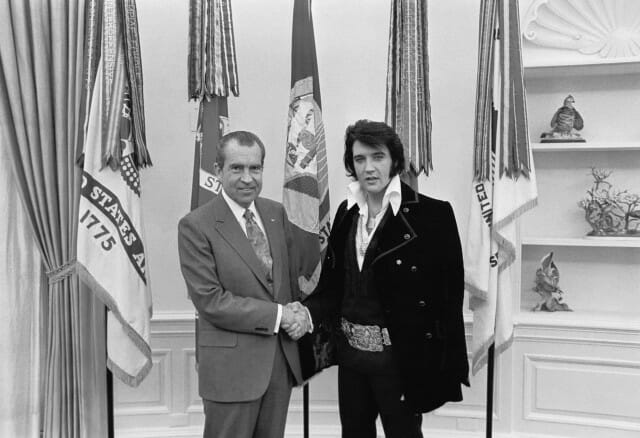
History matters. And why Nixon initiated the war on drugs matters. It matters because all history matters and it matters because many who oppose cannabis legalization today do so for strictly political reasons that hardly differ from Nixon’s day.
This week’s quote is much longer than usual, so please bear with us here.
Back when President Nixon knew he would be having a tough re-election fight, he and his henchmen concocted a brilliant (but evil) scheme to divide and scare our nation. The plan would be to generate fear among possible (but not definite) Nixon voters and then ride in on a white horse (the color matters here, as you will see below) and let everyone know that a Nixon reelection would snuff out all that of which the fear has been created. If you voted for Nixon, you would be voting to hold off the young, the poor, the black, and the hippies. In other words, everyone who Nixon was painting as not worthy of us and of wanting to destroy our country.
In the book, Smoke and Mirrors: The War on Drugs and the Politics of Failure (we urge you to read it if you have not already done so), author Dan Baum explains:
The [Nixon] White House lived by the principles of the southern strategy, and Dent’s office had its own lingo. There were issues that mattered to “our” people, and those that mattered to “their” people. “Their” people were what the White House called “the young, the poor, and the black.” The phrase rolled off the tongue like one word: theyoungthepoorandtheblack. The young were the longhaired student antiwar types for whom the president had open and legendary contempt; the poor and the black were leftover concerns from the Great Society.
Brownell daily read a dozen newspapers from around the country and clipped stories that played on those themes. He looked for stories about badly managed social programs, watched for currents of localized resentment, combed the columns for colorful quotes and juicy anecdotes the presidential speechwriters might use. He particularly kept an eye out for drug stories. Drugs were one thing the young, the poor, and the black all seemed to have in common.
Despite Nixon’s assertion to the Disneyland crowd that drugs were “decimating a generation of Americans,” drugs were so tiny a public health problem that they were statistically insignificant: far more Americans choked to death on food or died falling down stairs as died from illegal drugs.
So Brownell was delighted that the media were inflating the story by melding the tiny “hard drug” heroin threat with the widespread “soft drug” marijuana craze. Marijuana, Brownell knew, was a perfect focus for the anger against the antiwar counterculture that Nixon shared with “his people.” Brownell dug out a-recent clip from Newsweek: “Whether picketing on campus or parading barefoot in hippie regalia, the younger generation seems to be telling [the middle-class American] that his way of life is corrupt, his goals worthless and his treasured institutions doomed. Logically enough, a good many middle-class-citizens tend to-resent the message.” In an article Brownell might have penned himself, Newsweek identified the targets of that middle-class resentment this way: “The incendiary black militant and the welfare mother, the hedonistic hippie and the campus revolutionary.” The young, the poor, and the black. Nixon couldn’t make it illegal to be young, poor, or black, but he could crack down hard on the illegal drug identified with the counterculture.
John Erlichman (of Watergate fame) eventually admitted that the drug war had been dreamed up by Nixon and his team because it was too good not to do so:
Anybody who thinks this is the wrong fight for the NAACP should take a peek at this note from the diary of H.R. Haldeman, President Nixon’s chief of staff, referring to the launch of the war on drugs 40 years ago.
“[President Nixon] emphasized that you have to face the fact that the whole problem is really the blacks,” Haldeman wrote. “The key is to devise a system that recognizes this while not appearing to.”
That system turned out to be the War on Drugs, with marijuana being put in the same category as such drugs as heroin and morphine. Nixon’s White House counsel, John Ehrlichman, verified the intention of the War on Drugs in a 1995 interview with author Dan Baum, author of Smoke and Mirrors: The war on drugs and the politics of failure.
“Look, we understood we couldn’t make it illegal to be young or poor or black in the United States, but we could criminalize their common pleasure,” Ehrlichman confessed. “We understood that drugs were not the health problem we were making them out to be, but it was such a perfect issue for the Nixon White House that we couldn’t resist it.”
From, Joining the fight: Not your grandfather’s NAACP, by Larry Gabriel.
The war on drugs has been a sham since day one. That alone is reason to end it.























